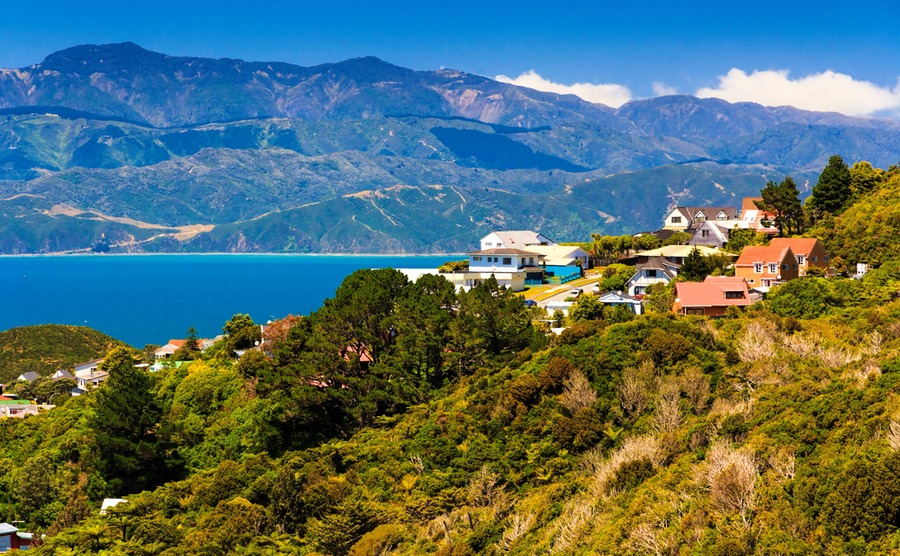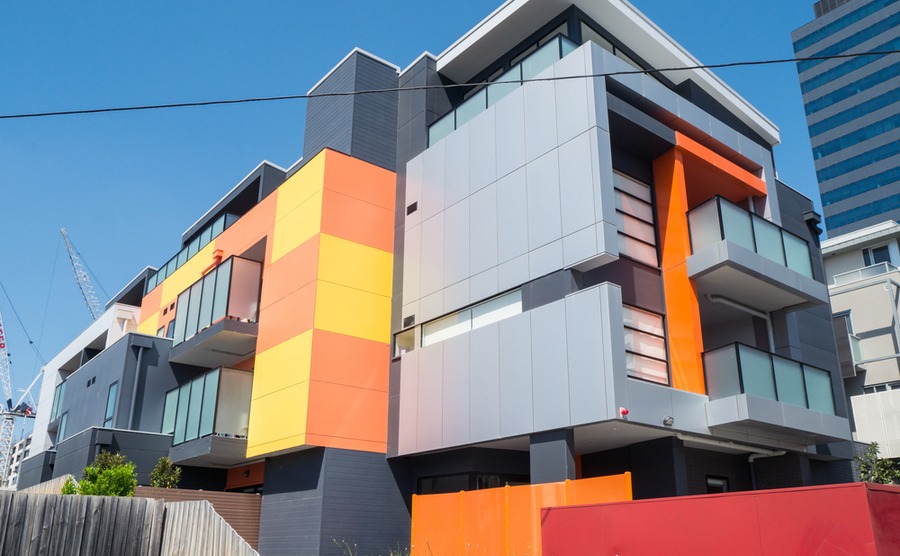Buying a home in Australia has always been a little tricky, with restrictions on overseas buyers. Now New Zealand has followed suit. But the fact is that thousands of us have bought Aussie property, finding ways to work through the rules. Can we do that with New Zealand too?
How do you buy a home in New Zealand?
New rules introduced last autumn have made it almost impossible for foreigners who aren’t resident in New Zealand to buy their own home there. The basic fact is that as a buyer from the UK or another country, until you’ve gained residency status you won’t be able to get the keys to that NZ house of your dreams.
These tighter controls have been in place since 22 October 2018, when amendments to New Zealand’s Overseas Investment Act went live after being approved in August that year. Rightly or wrongly, the NZ Government has taken this route primarily to stop the overheating effect that foreign purchases were having on its property market. Demand from foreigners, who were investing in the country without living there, was driving up property prices and seemingly pricing out local people from owning a home. The hope is that trend will now be stalled.
Make sure to get your free copy of the New Zealand Buying Guide – it covers everything you need to know about buying in this country.

Hands off, foreign investors! Luxury homes in Wellington are for locals only
‘Sensitive’ property
Looking closer, the new regulation taking away foreigners’ ability to buy a home has been a change in the classification of property categorised as ‘residential’ or ‘lifestyle’ – i.e. for living in. These are now classed by the NZ Government as ‘sensitive land’. In order to purchase sensitive land, a foreigner not living in New Zealand must apply for consent from NZ’s Overseas Investment Office (OIO).
Exemptions
These rules do not apply to New Zealand citizens, or Australian and Singaporean citizens. You will also not require OIO consent if you have either a New Zealand, Australian or Singaporean Permanent Resident Visa and live in New Zealand, or if you have a New Zealand Resident visa and live in New Zealand. To be deemed as ‘living in New Zealand’, you must have been resident there officially for at least 12 months, spending at least 183 days of the past 12 months there.
Spouse exemptions also apply. For example, if a couple are buying a family home and only one of them is a New Zealand citizen, neither of them need OIO consent.
The OIO has granted transitional exemption certificates to a selection of new apartment developments, mainly in Auckland.
In addition, the OIO has granted what it calls transitional exemption certificates to a selection of new apartment developments, mainly in Auckland. This means overseas buyers can buy on these developments freely without needing consent. However, this is only applicable to the first purchase of a new off-plan apartment – after its first sale, the new rules of the Overseas Investment Act apply. According to the OIO website, for an exemption to be considered, a development must be multi-storey with at least 20 residential units that were not completed before 22 August 2018 and were likely to be completed by 22 August 2023.
Consent required
In a nutshell, as a foreign citizen, you must apply – and be granted – OIO consent if: you have a New Zealand Permanent Resident Visa or Resident Visa but do NOT qualify as living in New Zealand; or you have an Australian or Singaporean Permanent Resident Visa but do NOT qualify as living in.
The fee for applying for OIO consent is NZ$2,040 (just over £1,000 at today’s rates). It is possible to get pre-approval before you have found a home to buy, in order to speed up the application process.
If you have only a Temporary Visa (e.g. visitor, student, working holiday or work visa), or you are any other type of overseas person, don’t bother applying for OIO consent – you will not be eligible for it, and therefore not legally allowed to purchase a home.
Under new rules, all purchasers of residential land in New Zealand must now complete and hand to their lawyer a ‘residential land statement’. This confirms all OIO consent requirements have been met. This applies even to those who don’t need consent, including New Zealand, Australian and Singaporean citizens.
How do you buy a home in Australia?
Not unlike New Zealand’s stance, the Australian Government’s policy is to channel foreign property purchases into the new-build sector. The aim is to support jobs in its construction industry and encourage economic growth.
As a rule, overseas buyers will need to apply for ‘foreign investment approval’ before purchasing any type of residential real estate in the country. Australia’s Foreign Investment Review Board (FIRB) oversees the implementation of all regulation regarding foreign investment, including the granting of approvals.
Find more details of how to buy a home in Australia with your free Australia Buying Guide.

A new apartment block in Melbourne (Nils Versemann / Shutterstock.com)
FIRB Guidelines
Some key points from the FIRB guidelines include:
Foreign citizens generally need to apply and receive foreign investment approval before purchasing new dwellings and vacant residential land for development. Applications to purchase new dwellings are usually approved without conditions. Applications to purchase vacant land are normally approved subject to construction being completed within four years (to prevent land banking). Once new dwellings are built or purchased, they may be rented out, sold, or retained for the foreign investor’s own use.
There is some flexibility that allows temporary residents to apply to purchase one established dwelling to use as a residence while living in Australia.
As a general rule, if you are a non-resident foreign citizen you cannot purchase an existing property (or ‘established dwelling’) in Australia. But there is some flexibility that allows temporary residents to apply to purchase one established dwelling to use as a residence while living in Australia. Under these circumstances, approval would be conditional on the temporary resident selling the property either when they leave Australia, or when they cease being a temporary resident without becoming a Permanent Resident or an Australian citizen. Temporary residents cannot buy established dwellings to rent out or for use as a holiday home.
Like in New Zealand, Australian citizens do not require foreign investment approval to purchase residential property, regardless of whether they are resident in the country or not. Similarly, New Zealand citizens and holders of Australian Permanent Residency Visas do not need to apply for foreign investment approval to buy property. And neither do spouses of Australian citizens, New Zealand citizens and holders of Australian Permanent Visas when purchasing residential property together.
Tax on vacant homes
Since May 2017, Australia has taxed foreign owners who leave their residential property empty for more than half the year. The aim of this is to encourage foreign owners to make their properties available to renters and keep a sufficient supply of rental homes available to local Australians. Called the annual vacancy fee, it is levied on foreign owners whose property is not occupied or genuinely available on the rental market for at least six months in a 12-month period.
Owners are required by law to lodge an annual vacancy fee return with the Australian Taxation Office (ATO), who will decide what it any fee is payable. Owners may be asked to prove that the property was occupied. Exemptions do apply, such as your property is undergoing substantial repair work or renovations.

